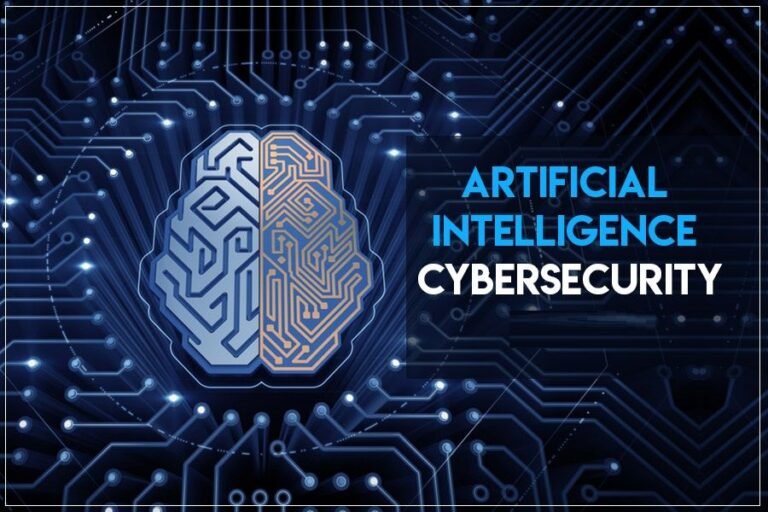In today’s digital landscape, cybersecurity has become a crucial aspect of protecting sensitive data, especially in the healthcare sector. Hospitals are prime targets for cyberattacks due to the vast amounts of personal and medical data they store. To combat these threats, innovative technologies such as Software-Defined Networking (SDN) and Artificial Intelligence (AI) are being leveraged to enhance hospital cybersecurity. Additionally, cybersecurity professionals are in high demand, particularly U.S. citizens, to protect national security interests. Events like the Innovate Cybersecurity Summit provide a platform to discuss these advancements, network with experts, and explore the reverse expo model. Let’s dive into these key topics.
The Role of SDN and AI in Hospital Cybersecurity
How SDN Enhances Hospital Cybersecurity
Software-Defined Networking (SDN) is a game-changer in hospital cybersecurity. Traditional network security models are often rigid and difficult to scale, but SDN allows hospitals to manage and secure their networks dynamically. Here’s how SDN contributes to hospital cybersecurity:
- Improved Network Segmentation: SDN enables hospitals to segment their networks efficiently, limiting unauthorized access to sensitive data.
- Real-Time Threat Detection: With centralized control, hospitals can detect and respond to cyber threats in real time.
- Automation and Flexibility: SDN allows automated responses to cyber threats, reducing the need for manual intervention.
AI’s Growing Role in Cybersecurity
Artificial Intelligence (AI) is another critical technology transforming hospital cybersecurity. AI-powered systems can analyze vast amounts of data, detect anomalies, and predict potential threats. Here’s how AI is being utilized:
- Threat Prediction and Prevention: AI algorithms analyze patterns and predict cyberattacks before they occur.
- Automated Incident Response: AI can automatically take corrective actions, such as isolating infected systems.
- Enhanced Compliance Monitoring: AI ensures that hospitals comply with cybersecurity regulations by continuously monitoring network activities.
Innovate Cybersecurity Summit: Exploring the Reverse Expo Model
The Innovate Cybersecurity Summit is one of the premier events where industry leaders, professionals, and vendors gather to discuss the latest trends in cybersecurity. One of the most unique aspects of this summit is its reverse expo model, which sets it apart from traditional expos.
What is the Reverse Expo Model?
In a standard expo, vendors set up booths and wait for attendees to visit. However, in a reverse expo model, decision-makers from hospitals and healthcare organizations are stationed at booths while vendors approach them. This creates a more efficient and productive networking environment, allowing for direct, meaningful conversations about cybersecurity needs and solutions.
Innovate Cybersecurity Summit Price
While attending the Innovate Cybersecurity Summit is a valuable investment, pricing can vary based on different access levels, including conference passes, workshops, and networking events. Many organizations consider the price a worthwhile expense due to the summit’s high-quality content, expert speakers, and strategic connections.
Cybersecurity Jobs for U.S. Citizens: Opportunities and Demand
With the rising number of cyber threats, the demand for cybersecurity jobs for U.S. citizens is higher than ever. Many cybersecurity roles require U.S. citizenship due to national security concerns, especially for positions within government agencies and critical infrastructure sectors.
High-Demand Cybersecurity Roles for U.S. Citizens
- Security Analysts: Monitor networks for threats and respond to incidents.
- Penetration Testers: Identify vulnerabilities in hospital systems.
- Cybersecurity Engineers: Develop and implement security protocols.
- Compliance Specialists: Ensure that organizations follow cybersecurity regulations.
Why U.S. Citizenship Matters in Cybersecurity
Certain cybersecurity jobs, especially those in federal agencies, require U.S. citizenship due to the sensitive nature of classified data. Hospitals and healthcare institutions also prefer U.S. citizens for critical roles to ensure compliance with national security laws.
The Geopolitics of Cybersecurity
Cybersecurity is not just a technical issue—it is deeply intertwined with geopolitics. The geopolitics of cybersecurity has become a growing concern as nation-state actors target critical infrastructures, including hospitals, in cyber warfare. The U.S. government and private sector must stay vigilant against international cyber threats.
Key Geopolitical Cybersecurity Concerns
- Nation-State Attacks: Countries like China, Russia, and North Korea have been accused of cyberattacks targeting U.S. healthcare institutions.
- Data Sovereignty Issues: The storage and transfer of sensitive medical data across borders raise security and privacy concerns.
- Global Cybersecurity Regulations: Different countries have varying cybersecurity laws, making international collaboration both necessary and complex.
Addressing Geopolitical Threats
To counteract cyber threats, the U.S. is strengthening its cyber defense strategies by collaborating with allies, investing in advanced cybersecurity technologies, and implementing stricter regulations for critical sectors like healthcare.
Conclusion
Hospital cybersecurity is evolving with the integration of SDN and AI, making networks smarter and more resilient against cyber threats. The Innovate Cybersecurity Summit provides an excellent platform to explore these innovations, discuss pricing, and engage in the reverse expo format. Moreover, the demand for cybersecurity jobs for U.S. citizens continues to grow, emphasizing the importance of securing national infrastructure. Lastly, understanding the geopolitics of cybersecurity is crucial in addressing international threats and safeguarding sensitive healthcare data.
